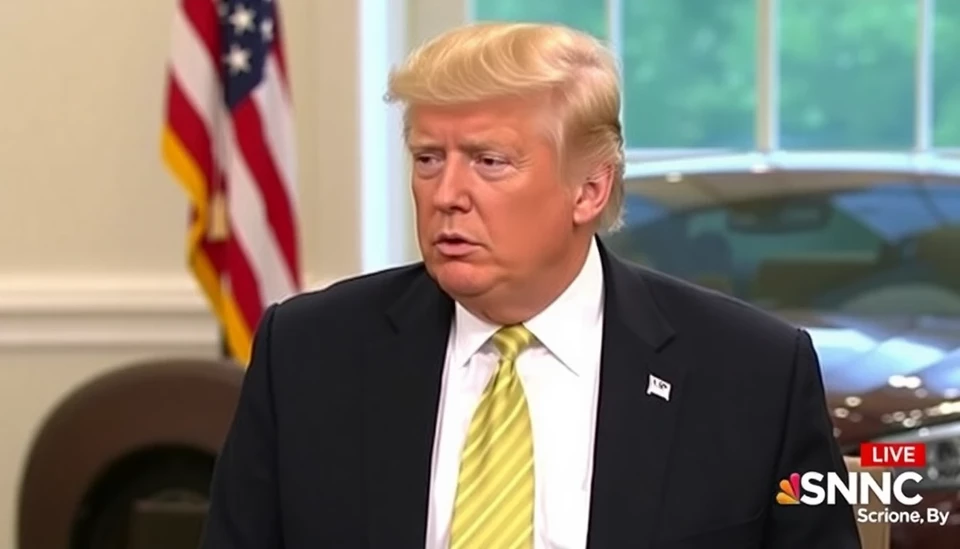
In a recent interview with NBC, former President Donald Trump discussed the increasing costs of automobiles, revealing a surprising level of indifference towards the financial burden these price hikes have placed on American consumers. During the interview, Trump stated bluntly, "I couldn't care less" about the implications of rising auto prices, sending shockwaves through the automotive industry and raising eyebrows among policy analysts.
The former president's comments come amid a backdrop of escalating vehicle prices, a trend that has been largely attributed to ongoing supply chain disruptions, production shortages, and inflationary pressures. As car manufacturers continue to grapple with a lack of parts and labor, many consumers have found themselves facing sticker shock at dealerships across the country.
Despite the growing concern about affordability, Trump maintained a light-hearted stance, suggesting that he does not see the issue as a priority compared to other pressing national matters. He expressed that consumers need to brace for higher prices, framing it as part of the landscape they must navigate in today’s economy. This view starkly contrasts the reactions of many consumers, who are feeling the pinch of escalating expenses in several aspects of their lives, especially regarding larger purchases such as automobiles.
Furthermore, Trump's remarks come at a strategic time for the auto industry, which is looking for clarity from Washington on policies that could impact production, labor, and trade. Analysts have noted that a disconnect exists between political rhetoric and the real-world experiences of American families grappling with the higher costs of living, which have been exacerbated by the pandemic and geopolitical tensions.
Critics of Trump’s stance argue that such indifference demonstrates a lack of understanding or concern for middle-class families who are finding it increasingly difficult to afford new vehicles. The average price of new cars has surged to record levels, prompting discussions about the long-term sustainability of this trend and its potential ramifications for the automotive market and the wider economy.
As the 2024 presidential election approaches, Trump’s comments might also resonate with his political base, as he has previously positioned himself as a champion for American workers and businesses. His approach may appeal to voters who prioritize deregulation and free market policies, seeing the climb in auto prices as a symptom of broader economic issues rather than a crisis in need of intervention.
The ongoing dialogue surrounding auto prices and their impact on the American economy will likely continue to evolve, especially as numerous factors contribute to market fluctuations. With a segment of consumers facing mounting pressures from inflation, Trump's comments could provoke further debate on the responsibilities of leadership to address such crucial economic issues.
As the auto industry navigates these challenges, the spotlight remains on how both current and former leaders respond to the needs of American consumers and the broader implications of rising costs across the board.
#Trump #AutoPrices #NBCInterview #EconomicPolicy #ConsumerConcern #Inflation #AutoIndustry #2024Election
Author: Victoria Adams




